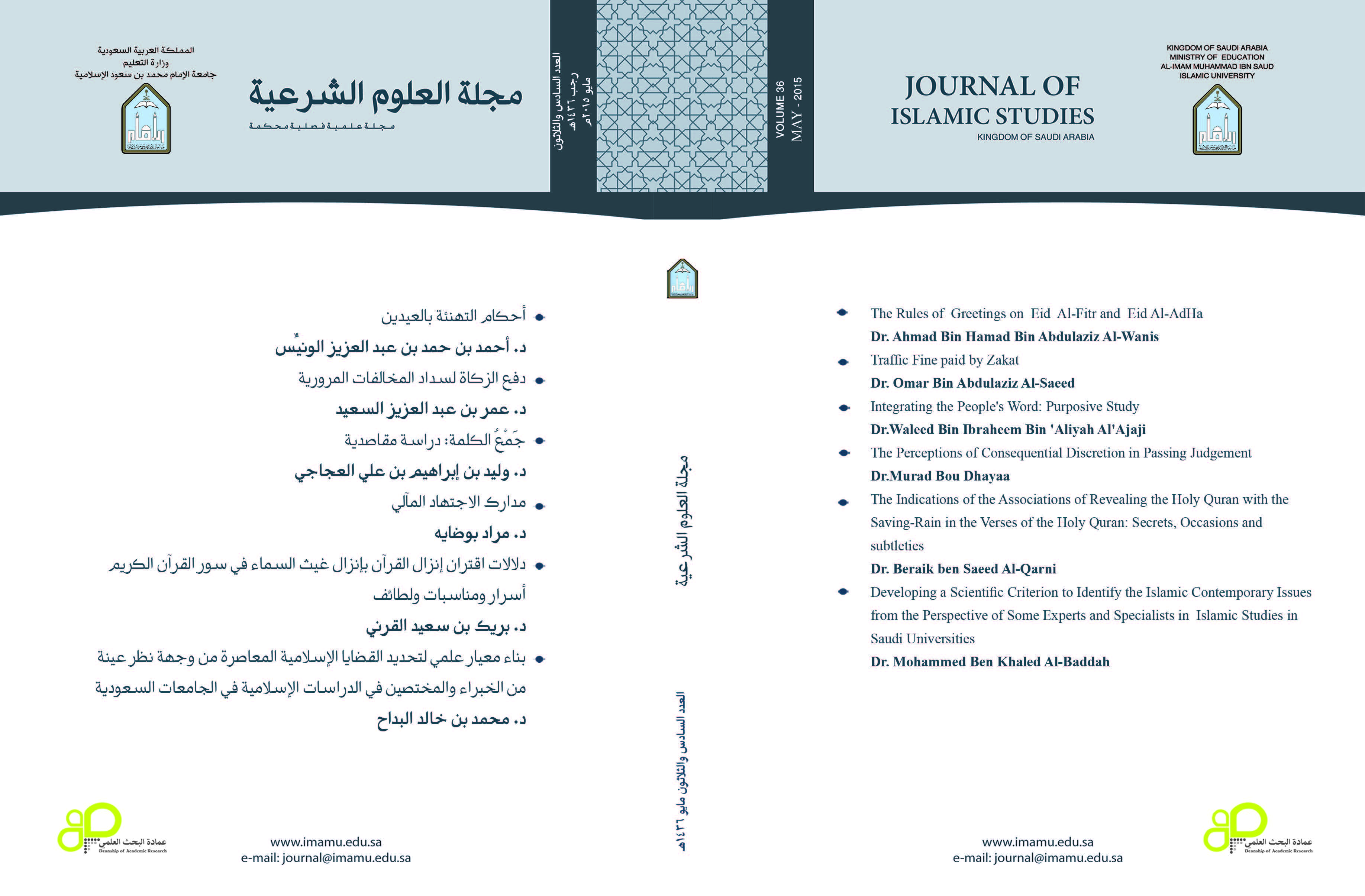Traffic Fine paid by Zakat
Abstract
All praise is to Allah, and may peace and blessings be upon His Messenger Muhammad, his family, his companions and his followers. Nowadays a majority of people have become reckless about the observance of traffic rules this have resulted in offenders paying fines due to increased traffic violations. The excessive fines may sometimes urge some who are unable to pay them to request assistance from Zakat fund to help pay off the fines. Since Zakat is a form of worship and its beneficiaries are categorically appointed by Allah in the Holy Qur'an, it’s worth examining this issue by searching the opinions of the Muslim legal scholars on the matter. Before getting into the issue we must emphasize that compliance to traffic rules is an obligation to this represents, obedience to the ruler of Muslim and the rules of the land is part of obedience to Allah. Violation of traffic rules and regulations is disobedience to Allah and an offence that incurs Ta'zir(a punishment not specified by Quran or Sunnah rather determined by an islamic court). A number of Muslim jurists consented fine as a legal form of Ta'zir. Given that, using Zakat funds to relieve the violator from traffic rules falls into one of the following categories:- First: giving the violator a share of Zakat on account of his poverty; It is permissible to give him a Zakat share to be used as funds to pay off the traffic fines incurred. Second: giving the violator a share of Zakat as debtor because due to his violation. However, if he persists and does not clear the offense, he is not eligible to share of Zakat. Otherwise, in case of repentance, the Zakat share may be granted. Third: the Zakat contributor may pay off the fine on behalf of the debtor (ghaarim) directly. If the cause of paying the fines is the offender's poverty, however, the payment of the money as Zakat becomes impermissible, and the payer is still requested to pay his due Zakat. The reason here is that the poor person must first receive and possess the money given to him as Zakat before paying off the fine, this is not demonstrated in the above example. However, if the reason for paying the fine on behalf of the offender is that he is a debtor (ghaarim), it is permissible for the Zakat payer to pay off the fines directly. For, the intention here is to pay off his debt.




